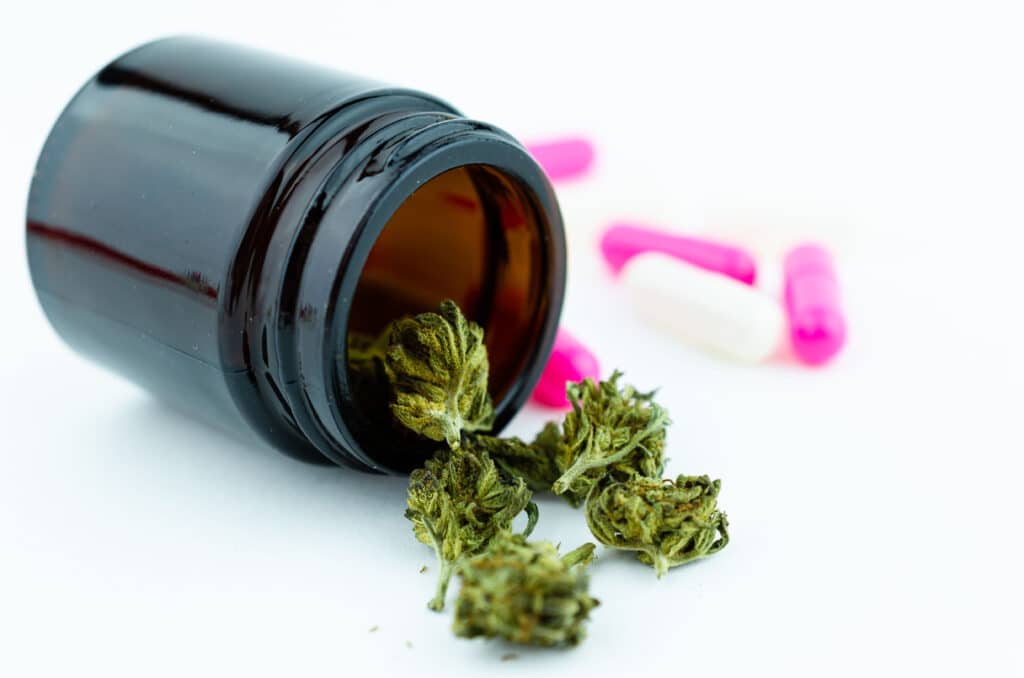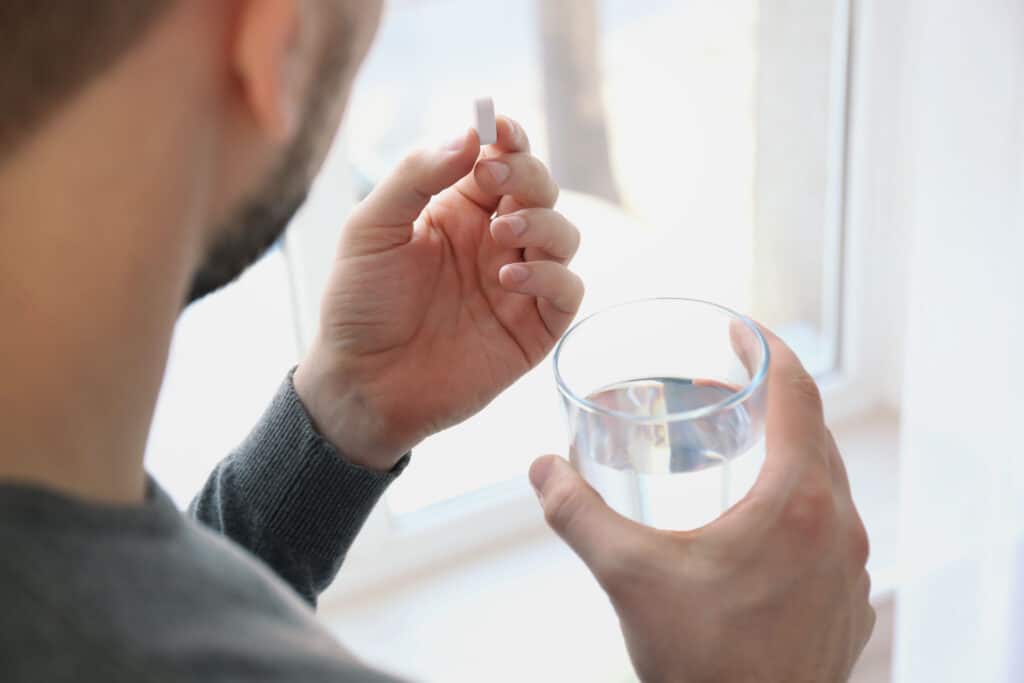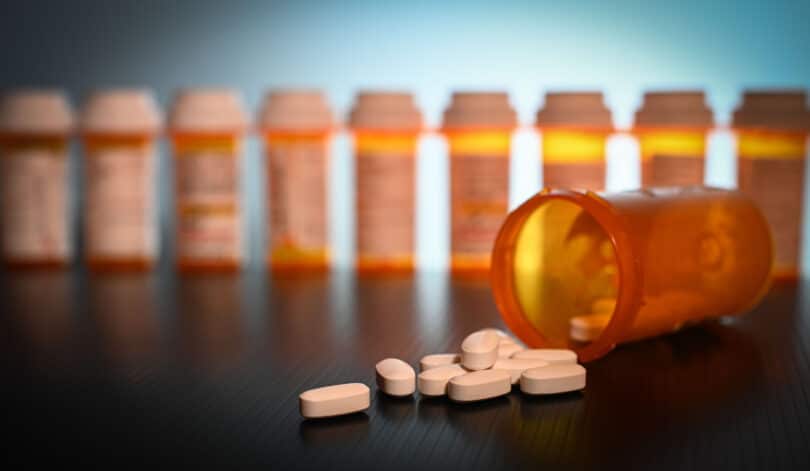With an growing opioid overdose issue, you’d think anything that can help, would be used immediately. Recent research (again) ties CBD use with a decrease in opioid prescriptions.
New study on CBD and opioid prescriptions
The study in question, called CBD as a cure-all? The impacts of state-level legalization of prescription cannabidiol (CBD) on opioid prescriptions, was recently published in the Southern Economic Journal. Study researchers for the project came from Wofford College in South Carolina and California State University Bakersfield.
The study examined if state legalization for CBD products, had any affect on opioid prescribing rates; as well as if access through legal dispensaries had any effect on prescription rates. The first measure was country-wide, while the second was a look at the situation by state. The first relied on states with laws for limited access to cannabis products (laws which generally only enable the use of CBD); and the second, on states with general recreational and medical legalization laws that provide access to CBD products via dispensaries.
When looking at the first part, concerning limited access laws, the researchers found no difference in opioid prescribing rates. However, when looking at states that provide access through dispensaries, they found a 6.6% – 8.1% reduction in prescriptions for opioids. A synthetic control model estimate, approximated that there is a reduction of 3.5% in opioid prescribing, two years after a legalization.

The study found something else interesting, which might apply to more than just CBD. Study results indicate that once users are required to show an ID to buy CBD, or join a patient registry; that the decrease is offset. This indicates a strong desire of patients to maintain privacy; and a reticence to purchase certain products, if it violates that privacy.
Researchers brought there investigation down to a few conclusions concerning how availability of CBD changes opioid use/prescribing. The first is that requiring prescriptions to obtain CBD, does not help reduce opioid prescriptions at all. The second, is that anything that gets in the way of a purchase, like even an ID check, is enough to dissuade many buyers, even if it means not getting the help they need. And third, that if there is really desire to combat the opioid crisis, that easy access to CBD products (dispensaries and/or interstate purchasing ability), is necessary.
The opioid epidemic and why this matters
This is not a study looking at whether people like CBD; it’s a study that aims to establish if CBD is helpful in what is a staggering problem in the US. And so to be clear, before saying anything more, CBD comes with no death toll. If you’ve seen stories about issues with vapes, or tainted products, this is a different concern. Dirty or corrupted products are everywhere, in every industry. The compound of CBD itself, however, does not cause death. In fact, the most it causes negatively, is an uncomfortable couch lock feel for some. But it is unquestionably (and this is important) a non-death toll compound.
Opioids, on the other hand, are completely death toll compounds; and have led to a massive increase in overdose deaths, since their main arrival through the drug OxyContin, in the 1990’s. The opioid issue actually extends to pretty much every other drug class, as opioids are often mixed with most anything; from coke, to meth, to heroin, to alcohol. This means, not only have direct opioid deaths gone up; but deaths in all drug categories have risen, due to mixing with opioids.
In terms of numbers; the 2022 preliminary overdose death numbers for the US, which were released in May, give the number 109,680. There was less of an increase from 2021’s 109,179, than seen in the preceding years; although 109,179 is the updated number, and the preliminary one, was 107,622. This indicates the 2022 preliminary number, could also rise by the time it becomes the official number.
Though still a smaller increase from the previous years, its still an increase; and that means the problem is not getting any smaller, only bigger. 2021’s number, was a 15% increase from 2020’s 93,000 overdose deaths. And that number, went up 30% from the year before. 2019 had about 70,630 fatal overdoses from drugs.

Between 2019-2022, the overdose number went up 40%. 2018 had 67,367, which was actually lower than 2017’s 70,237. This is the only time recently that we’ve seen the trajectory change. Considering how quickly numbers picked up after this dip; it implies access to opioids shot up, or that the 2018 number might be representative of bad data collection and reporting.
These numbers represent all overdose deaths from all drug classes; not just opioids. In terms of the 2022 number, its expected that approximately 2/3 are related to synthetic opioids. This means, not codeine or heroin; but drugs like oxycodone, fentanyl, and other synthetic compounds that don’t exist in the opium plant, and are considerably stronger than the offerings of previous decades, centuries, and millennia.
Heroin – what used to be the be-all-end-all of drug use, has had relatively consistent overdose death numbers for over 20 years, despite many reports that it spiked up around 2010. You can see from the attached graph, this notion was a bit of an overstatement; and probably just a means of shifting focus from the growing synthetic opioid epidemic, which was already taking off.
Is this the first time we’ve heard CBD can help with opioids?
No, not even close. This conversation has been going on even before CBD was legalized through the 2018 US Farm Bill. The reason is that CBD can reduce addiction anxiety, partly by deactivating opioid receptors. It can also decrease pain issues by working as an anti-inflammatory, and by blocking pain signals to the brain.
And its been bringing down opioid use numbers for many years. A 2014 study out of Johns Hopkins Bloomberg School of Public Health, in conjunction with the Philadelphia Veterans Affairs Medical Center, showed that medical cannabis states had prescription drug death rates 25% lower than in states with medical cannabis allowances. According to the study, states with medical cannabis laws, had approximately 1,700 less yearly deaths from opioids, as of 2010.
Both CBD, and cannabis in general, are cited for their ability to bring down opioid use. As cannabis as a whole (including THC) still has no direct death toll attached, we are once again automatically comparing something that kills no one, to drugs that kill close to 100,000 people a year in the US alone. This should always be remembered when there are fear campaigns in the US over cannabis.

In terms of cannabis as a whole, this 2022 study indicates the plant can bring down opioid use, and that its not just about CBD. This study, entitled Medical Cannabis Patients Report Improvements in Health Functioning and Reductions in Opiate Use, used a self-report method to evaluate how cannabis use affects opioid taking.
According to study results, a majority of 79% said they used less other pain medication, or stopped using all other pain medications completely, when using medical cannabis. Many (11.4%) said they had improved functionality in life. About 9% of the included participants only had a pain issue, while 49.92% reported pain along with a mental health issue.
Cannabis has been cited as a feasible answer to opioid addiction for so long; that its weird its not pushed by the federal government to deal with the opioid crisis, and that it gets pushback at all. If the idea is to really help people, shouldn’t they get helped? Even if it doesn’t work for a person, or if it only helps some people; the fact that it’s a safe option up against medicines understood to be taking lives by the tens of thousands, makes it silly that we have to make a case for it at all.
Any government lines of ‘concern,’ are shot to hell by the fact that these ‘concerns’ (over things like disproved smear-campaign theories that cannabis promotes psychosis); run alongside over 100,000 deaths a year from drug overdoses. Maybe those deaths should be the ‘concern,’ not a plant that has a chance of helping the problem.
And for that matter, what about ketamine?! CBD and cannabis, can probably help a lot of people. But the harsh reality, is that neither is likely enough for extreme pain issues. However, ketamine is; and much like weed, it offers an answer that comes without a death toll. Once again, any fear complaints about the drug, are gravely misplaced considering that any non-death toll drug (with minimal injury attached), is automatically a better option to a known killer. Yet despite this basic logic; nearly all information on ketamine for pain relief, is so badly suppressed that most people have no idea its an option at all.
Conclusion
The second there was an inkling that a compound like CBD could help with opioid addictions (or cannabis or ketamine); it should have been used immediately, to lower opioid use rates. That we still have to argue about non-lethal compounds while people die left and right; is not a good indication of what we can expect from governments or medical systems, in terms of taking real action. You’re best bet if you’re in the situation of dealing with pain, and don’t want opioids? Do the research, get the products (or sign up for the programs), and get yourself the help you need.
Welcome cannabis fans. We appreciate your patronage at Cannadelics.com; an independent publication in the weed scene, reporting on the biggest stories of today. We’ve got daily updates, so join us frequently; and sign up to our Cannadelics Weekly Newsletter; for all the best news and promos, right to your email.









